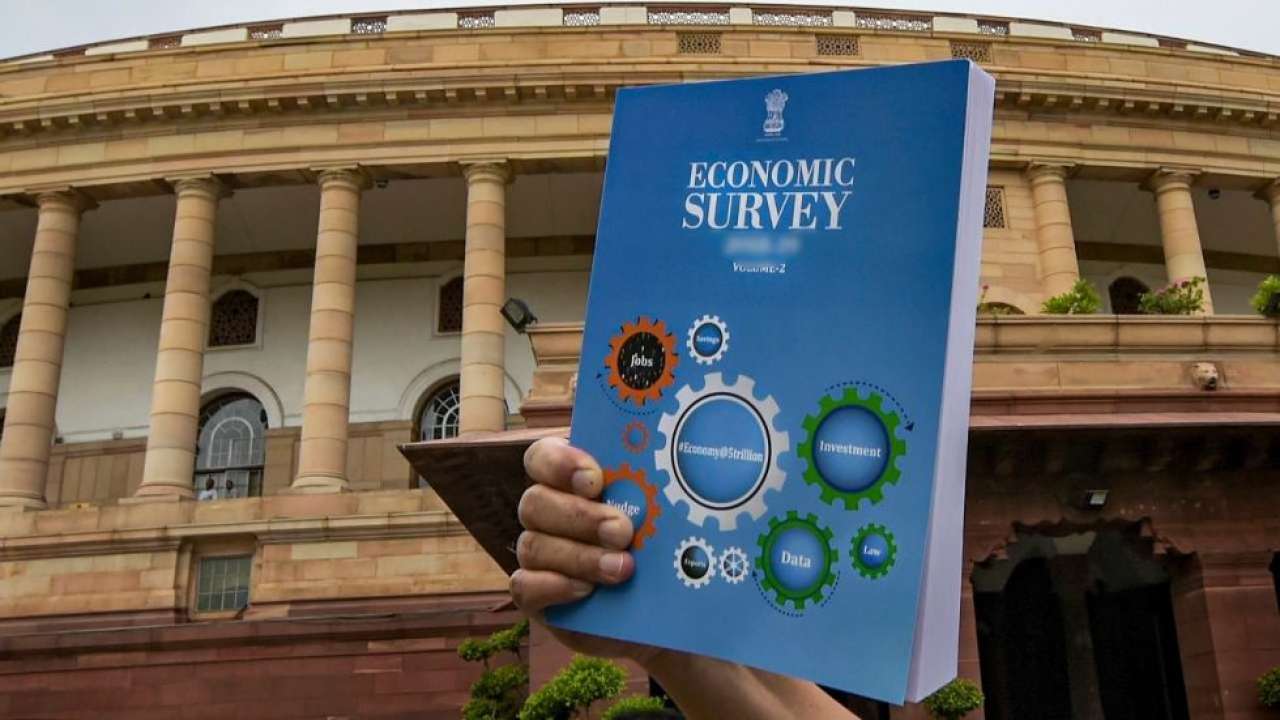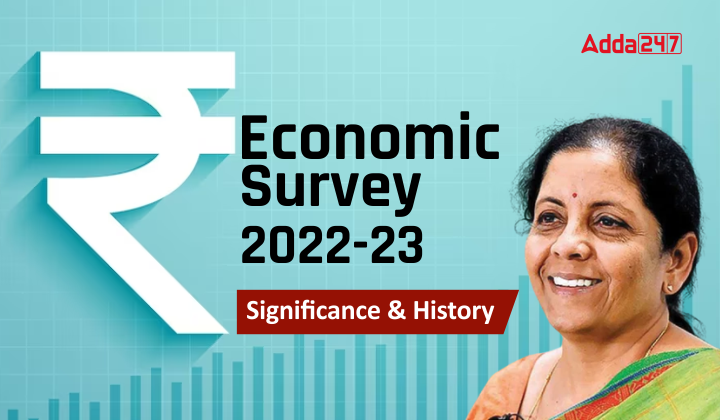Economic Survey: Meaning, Importance and Highlights
The Economic Survey is a flagship annual document which reviews the state of the Indian economy. The survey is tabled in Parliament a day before the presentation of the budget. However, the Constitution neither binds the government to present the Economic Survey nor is the government obliged to go with its recommendations. It is completely left to the government to decide if it will adopt or reject the suggestions made in the Economic Survey.

Significance of Economic Survey:
The Survey facilitates a bird’s eye view of the trends noticed in different sectors over the previous year like agriculture, manufacturing, employment, infrastructure, prices, exports, imports, foreign exchange reserve, and money supply for example.
-
- It highlights the government’s policy initiatives, reviews the performance of development programmes and discusses the prospects of the economy in the short- and medium-term scenarios.
- Importantly, the survey projects the gross domestic product (GDP) growth, and provides an insight into the economic outlook for the country.
- It pinpoints the quality of policy responses needed under the prevailing economic situation.
Why is it presented before the Budget:
The survey provides key inputs which influence the budget-making process. Considering the fact that it provides a detailed analysis of economic developments of the past financial year, it sets the context for the budget.
The survey was de-linked from the Budget in the year 1964 and circulated in advance so that a context of the Budget can be provided. This way it helps in better understanding of the budget proposals.

History of Economic Survey:
The first economic survey was released in the financial year (FY) 1950-51.
-
-
- In the next 14 years that followed, it was presented along with the Union Budget.
- Starting from 1964, it preceded the budget and was released a day before the budget session in the parliament.
-
Who prepares the Economic Survey:
The Economic Survey was prepared by the Economic Division of the Department of Economic Affairs in the Finance Ministry under the overall guidance of the Cheif Economic Adviser. After receiving inputs from the senior officers in the Ministry of Finance, the final version of the Economic Survey is scrutinized by the Finance Secretary and finally approved by the Union Finance Minister.
Dr V Anantha Nageswaran as Chief Economic Advisor :
Nageswaram was a former part-time member of the PM’s Economic Advisory Council (EAC). He has now assumed charge as the next CEA after KV Subramanian announced return to academia after the completion of his three-year term on December 17, 2021.
Prior to this appointment, Nageswaran has worked as a writer, author, teacher and consultant. He has taught at several business schools and institutes of management in India and in Singapore and has published extensively.
He was the Dean of the IFMR Graduate School of Business and a distinguished Visiting Professor of Economics at Krea University. He has also been a part-time member of the Economic Advisory Council to the Prime Minister of India from 2019 to 2021. He holds a Post-Graduate Diploma in Management from the Indian Institute of Management, Ahmedabad and a doctoral degree from the University of Massachusetts in Amherst.





 Which District is known as the Medical C...
Which District is known as the Medical C...
 Which was the First Women's University i...
Which was the First Women's University i...
 L&T Vyoma to Study 250 MW Green AI D...
L&T Vyoma to Study 250 MW Green AI D...








